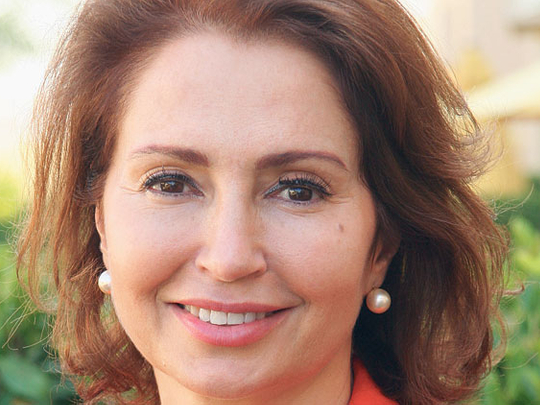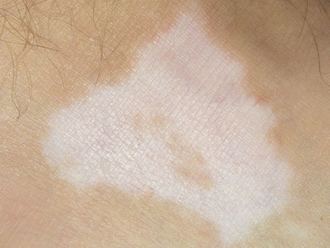
Nowadays, people want the way they feel on the inside to be reflected on the outside. While some think physical fitness is the key to ageing gracefully, many are going under the knife to improve looks. Plastic surgery has taken on the cloak of "aesthetic" surgery, whereby reconstruction and augmentation are socially accepted methods of being beautiful.
"A little lifting, shaping, plumping, smoothing or suctioning definitely gives you an edge and boosts your confidence," says Dr Catherine Bergeret-Galley, a French aesthetic surgeon. Dr Bergeret-Galley is a visiting consultant at the Belhoul European Hospital in Dubai. She specialises in obesity and post-pregnancy sequela and has more than two and half decades of experience. Unwind caught up with her at a seminar on surgical makeovers at Holiday Inn Al Barsha, Dubai.
Why do you think people are afraid to age?
It has become socially inadequate to age. But people come to us not because they want to look 20 at 60. They just want to age gracefully. At 60, if you are still active, working and keeping fit, you wish to look that way. And surgery can take off 10-15 years off you.
But don't you think a healthy lifestyle can achieve that?
If you lead a very unhealthy life (smoking, alcohol consumption, no exercise), professional and family stress will age you faster. Maybe you'll need a facial rejuvenation before 40. But if you lead a healthy stress-free life you'd probably need minimal correction after 60 — maybe a few Botox injection or fillers in your cheeks to removing sagging. However, most people don't practise this kind of lifestyle, especially when they have a lot of work and responsibilities.
Then is surgery an easy way out?
One might just need a filler or an injection instead of extensive surgery. Moreover, beauty is a state of mind.
What are the most common procedures people go for?
Men usually come in for light facial rejuvenation. Women, whether obese or otherwise, choose facial procedures — Botox, fillers and facelifting — rhinoplasty and body redefinition.
What are the different kinds of implants used? How do you choose one for a client?
We have two types of implants — injectible and non-injectible. Hyaluronic acid and collagen are the most commonly used and long-lasting facial and body-injectible implants. They suit almost everyone, as they have very high tolerance levels. Semi and hard implants are used for the thorax, buttocks, calf, etc, while soft, non-injectible implants, such as artificial dermis, are used for scars.
Are there any natural implants?
Fat is natural. Collagen and hyaluronic acid are almost the same as those found in the body.
What are the latest technologies involved in aesthetic surgery?
Lasers are mainly used for the face, to smooth the skin and remove tattoos and pigmentation. For hyperpigmentation, pealings are preferred, though it's important to handle them properly. But pealings give better results than laser. Ultrasonic devices and radio frequency are some of the new techniques.
Can surgery be performed on one with diabetes or heart problems?
Surgery is not the issue for people with diabetics. It's the post-operative healing period. But you cannot have surgery on someone in bad health.
Obese patients?
Obesity need not mean you are in bad shape. Just don't wait till you are 45 to start treatment, because by then, you will have the complications of obesity but age too.
How effective are the anti-ageing products in the market?
I believe that as a woman and a mother, I am at an advantage in my profession, because I know about pregnancy, post-pregnancy sequela and creams, because I use them too. It helps me, as I'm more aware of cosmetics because I'm directly affected by them. If you come to me and I feel you don't need surgery or injection but cream, I will tell you.
Is there a code or a law that says a person cannot have more than a certain number of surgeries?
If you see a good plastic surgeon, he or she will first check why and if you need surgery. We try to befriend patients with a pathological personality to refrain them from unwanted surgery. We advise them against unwanted surgery.
How much would general procedures cost?
Cost varies with each procedure. Another priority is the safety of the patient. As a surgeon, you need to be careful about how you conduct the procedure. Before going in, one must remember it's not about putting a packet in a big empty bag but reshaping the bag to suit the packet. It's not just an implant but reconstruction and the follow-up after the operation. Roughly speaking, a nose job would be about Dh20,000 — but it could be much less if it's just the tip. Botox injections cost between Dh1,000-Dh3,000. A tummy tuck can be anything between Dh25,000-Dh35,000.
Is surgery a permanent solution?
As long as the implant is not fractured, it can last long. Even fractured ones can last about six months, though it's always better to change them.
Are there any procedures that need to be done regularly?
Some treatments, such as facial rejuvenation. You can come in for a touch-up but if you have a facelift, it can last you a lifetime. If you are not a movie star, once is enough. Rhinoplasty is another treatment people do once in their life. Tummy tucks, properly done, can last long, even when you gain weight or during the post-pregnancy phase.











